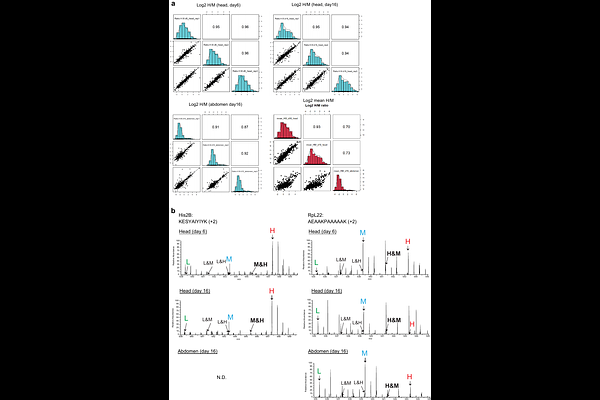Storage Protein-Mediated Translation Control Links Juvenile Diet to Longevity in Drosophila

Storage Protein-Mediated Translation Control Links Juvenile Diet to Longevity in Drosophila
Kosakamoto, H.; Okada, R.; Barker, C.; Seita, J.; Dohmae, N.; Imami, K.; Obata, F.
AbstractDietary restriction (DR), whether applied during adulthood or juvenile stages, extends lifespan across diverse species. However, the mechanisms by which early-life dietary interventions influence adult physiology and longevity remain poorly understood. Here, using Drosophila as a model, we demonstrate that protein restriction during the larval stage (early-life protein restriction, ePR) promotes adult lifespan by reducing storage protein levels. Stable isotope tracing reveals that dietary amino acids obtained in the larval stage are retained into adulthood, especially incorporated into ribosomal proteins. This is mediated by larval serum protein 2 (Lsp2), a major storage protein, whose expression is durably downregulated by ePR. Both dietary (ePR) and genetic (Lsp2-RNAi) reduction of the protein storage lead to decreased ribosomal protein levels and translation activity in early adulthood. Notably, these storage proteins are enriched in aromatic amino acids such as tyrosine, and larval dietary tyrosine restriction alone is sufficient to suppress translation and promote longevity. These findings show that storage proteins mediate the effect of larval nutrition on adult longevity via controlling translation. Our study uncovers a previously unrecognized mechanism of nutritional memory that links early-life nutrition to adult physiology and lifespan.